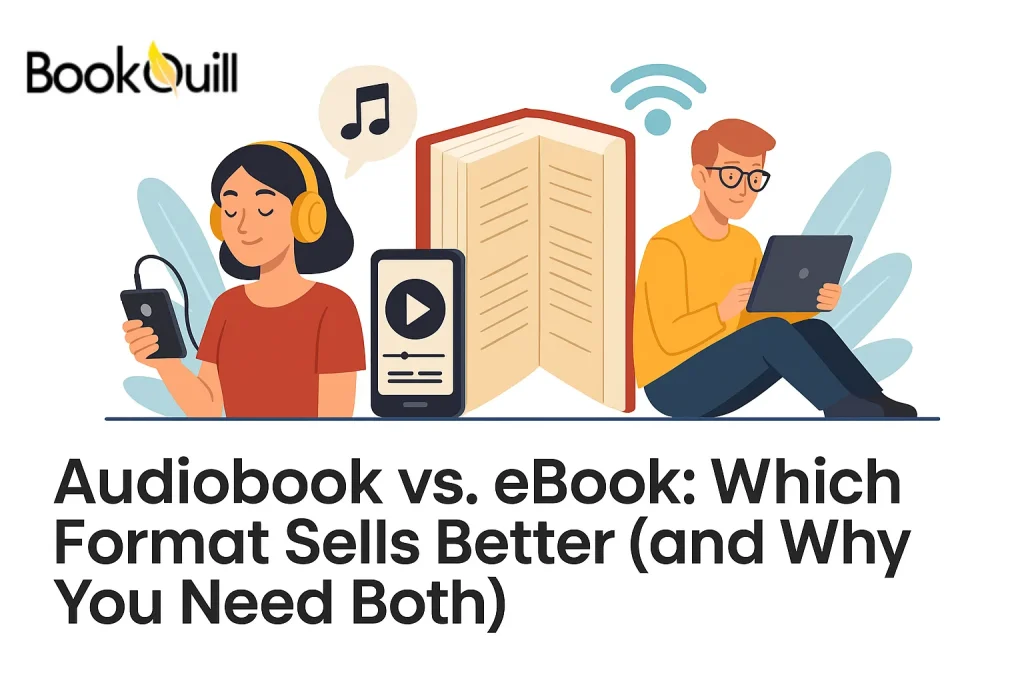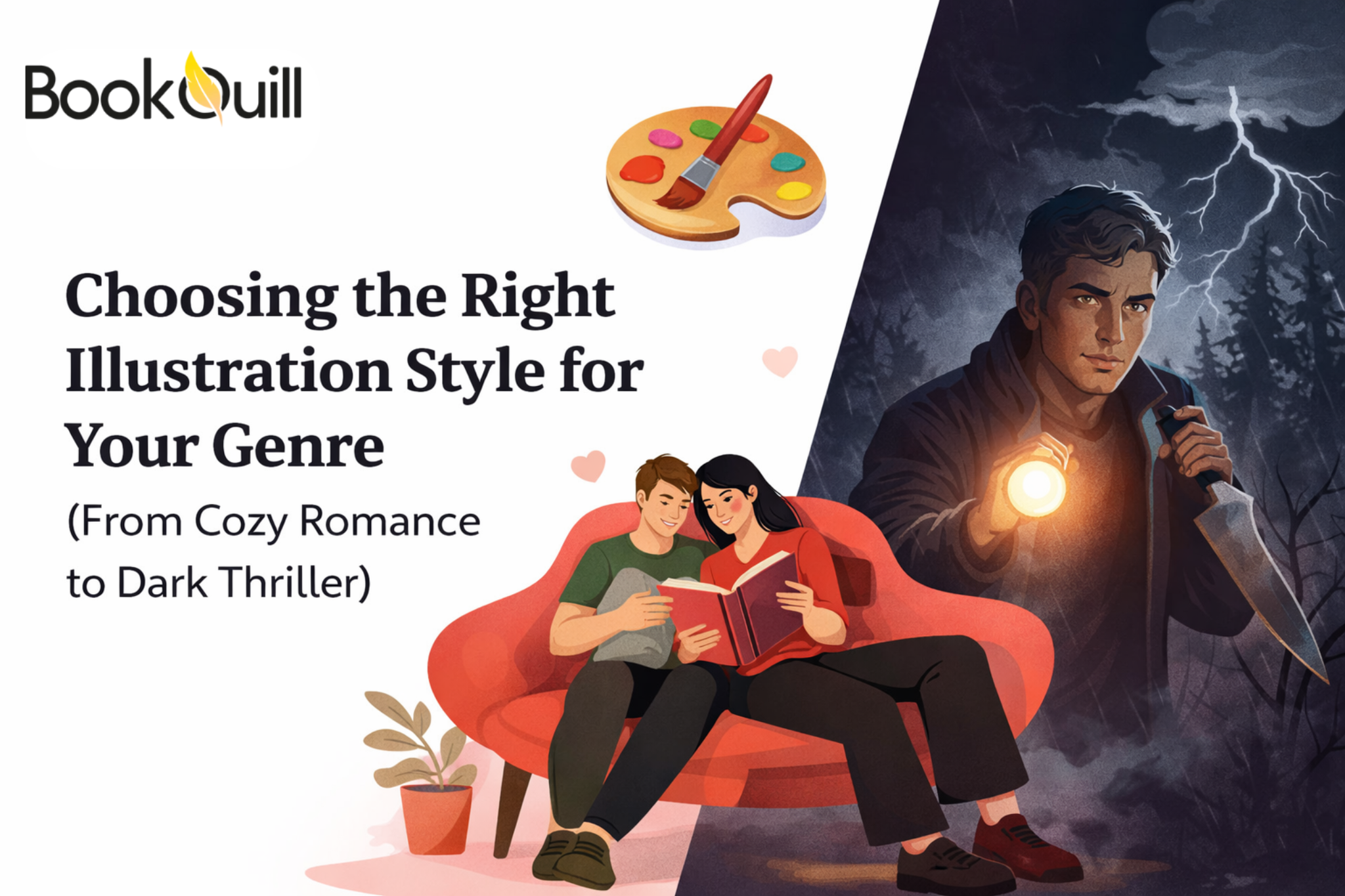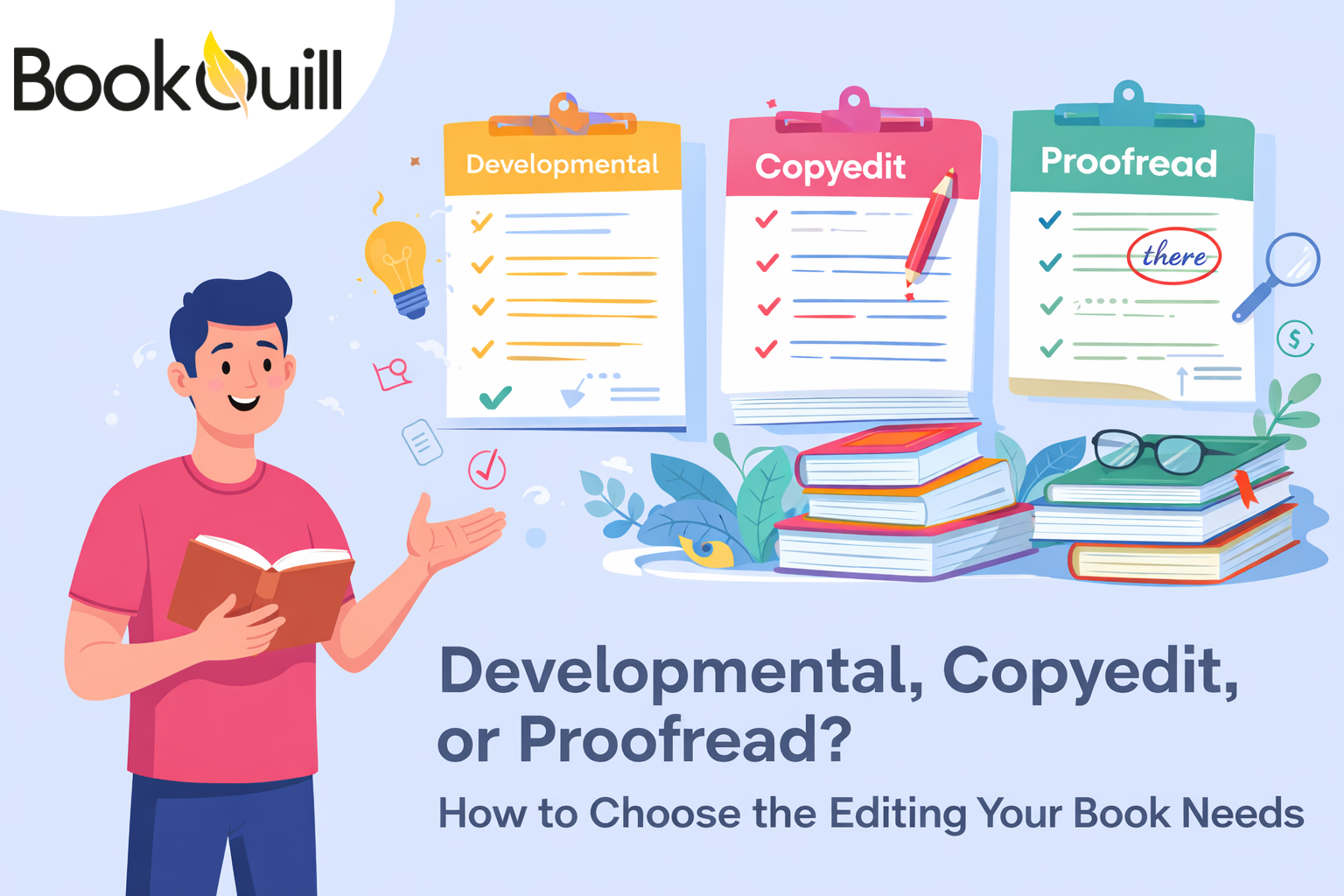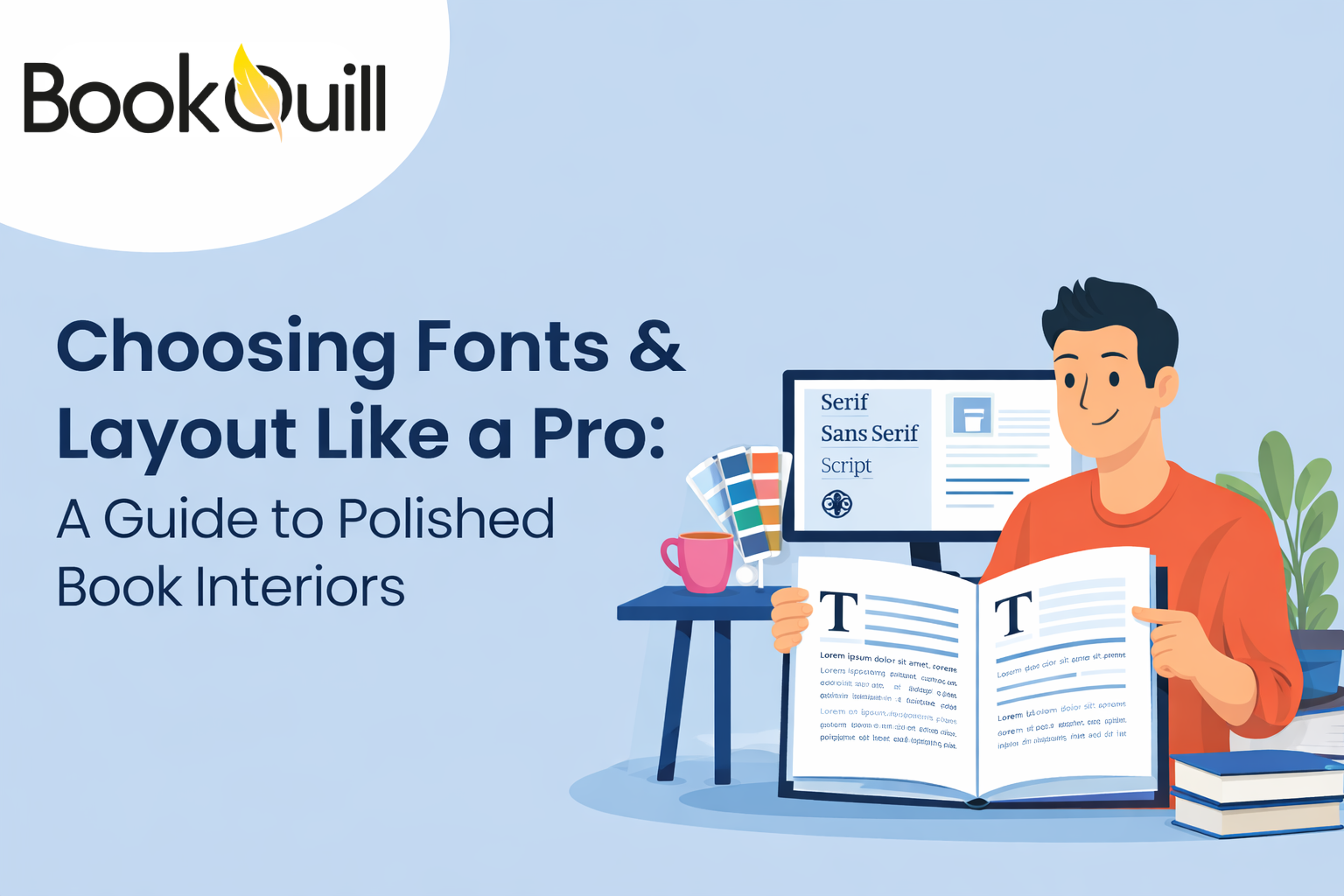Table of Contents
Explore Blogs
Trending on Ebook
Audiobook vs. eBook: Which Format Sells Better (and Why You Need Both)

Once upon a time, books were just… books. No batteries, no Bluetooth, or narrators reading out a thriller to you while you fold your laundry. But let’s fast forward to the 21st century, and books have become shapeshifters.
Then comes the battle of the book formats! EBooks vs. audiobooks! One you hear, one you read, both built for convenience. But here’s the question! When it comes to sales, reach, and reader love, who do you think is winning? And more importantly, should you pick one as an author?
Honestly, it isn’t just a number game! It’s a lot more than that! More about consumer behavior, accessibility, marketing power, and the many weird and wonderful ways people interact with stories today.
So, if you are a new author, a book coach, a publisher, or someone thinking of writing your very own book, this blog will help you figure out the difference between eBook and audiobook, what works, what sells, and how to work both formats without going out of your budget.
Let’s get started!
Key Takeaways
- EBooks sell more copies, but audiobooks often generate more revenue
- Audiobooks offer mobility and emotional impact, while eBooks provide instant access and global reach.
- Authors who choose only one format limit their discoverability and audience reach across platforms.
- Publishing in both formats doubles your sales funnel and creates more opportunities for engagement.
- With professional audiobook services, creating both formats is not just possible, it’s a smart strategy.
Battle of the Formats: eBooks vs. Audiobooks
Before we crown a winner, let’s break down what these formats actually are.
An eBook is a digital version of a book. You read it on a screen, on a Kindle, tablet, smartphone, or even your laptop. EBooks really took off with the rise of e-readers in the late 2000s, and today, they’re a go-to format for indie authors and traditional publishers alike.
Meanwhile, an audiobook is your book’s voice. It’s a spoken version, often performed by professional narrators or authors themselves. Some are full-on productions with music and sound effects. Others are simple, intimate, and perfect for a long walk or a long commute.
How do we use them today? Well, eBooks are mainly used by screen readers, night owls, students, and travelers. While audiobooks are used by commuters, multitaskers, visually impaired readers, and gym-goers.
And since 2020? Let’s just say the lockdown audiobook binge was very real. One survey from Edison Research found audiobooks aren’t niche anymore. In fact, 51% of Americans aged 18 and up, about 134 million people, have listened to them.
We’re no longer just reading. We’re absorbing stories however we can, whenever we can. And yes! The difference between an eBook and an audiobook isn’t just format; it’s the experience.
Psychology of Listening vs. Reading
It might seem like listening to a book and reading one would engage completely different parts of the brain, but in reality, they activate many of the same neural pathways.
According to a study, both formats engage the same language-processing regions in the brain, especially the superior temporal sulcus, which handles comprehension. So if you are reading a fantasy novel on Kindle or listening to a crime thriller on Audible, your brain is doing very similar work.
But… some unique differences matter:
Reading (eBook or print)
- Triggers deeper visual processing.
- Helps readers absorb detailed information and analyze structure.
- Great for complex or dense material, where pausing and rereading is helpful.
Listening (Audiobook)
- Engages auditory and emotional memory centers more heavily.
- Enhances tone, pacing, and personality through vocal delivery.
- Can result in stronger emotional resonance, especially for memoirs or fiction with dialogue.
In short, reading builds precision and listening builds connection. That’s why many people find audiobooks more immersive, while eBooks are better for note-taking, study, or detail retention.
How Reader Habits Have Changed in the Last 10 Years
Ten years ago, reading meant one thing. It was either flipping pages. But fast-forward to now, and the way we consume books has drastically changed.
1. Digital Overload, Audio Relief
We live in a screen-heavy world. Between Zoom calls, Netflix binges, and scrolling social media, we also love to read books wherever and whenever we can, through eBooks. And if our eyes get too much exhausted, readers opt for audiobooks, a hands-free, screen-free experience.
2. The Era of Audio Multitasking
Audiobooks now fill time that used to be “dead zones” like commutes, cooking, workouts, and even laundry day. People don’t have to take time to read. They listen while living, making audiobooks a convenient alternative.
3. Post-Pandemic Shifts
During COVID lockdowns, many turned to eBooks and audiobooks as a coping mechanism. According to Publishers Weekly, audiobook consumption surged in 2020, and the habit stuck. Listeners discovered the ease of multitasking with a great story in their ears, and the format has only grown more popular ever since
4. Brain Bonus
Studies suggest audiobooks activate the same cognitive regions as silent reading, meaning listeners retain nearly as much (and sometimes more). That’s huge for authors wanting deeper reader engagement.
So this means, readers are evolving, and successful authors need to evolve with them.
The Numbers Game: Which Format Actually Sells More?
Let’s talk numbers, shall we?
According to Statista, revenue in the Audiobooks market is projected to reach US$5.38bn in 2025, in the United States. Meanwhile, revenue in the eBooks market in the world is projected to reach US$14.92bn in 2025.
We can see that eBooks still dominate in volume. And that’s because far more indie authors publish eBooks than audiobooks, simply because they’re cheaper and easier to produce. However, audiobooks are now generating more revenue per unit, and their audience is both loyal and growing.
Here’s where it gets interesting:
- EBooks sell more copies.
- Audiobooks often bring in more dollars per sale.
- Nonfiction and business books dominate audio.
- Romance and thrillers own eBooks.
- Younger readers (Gen Z and Millennials) are more likely to listen than Boomers.
And let’s not forget device use. EBooks require your eyeballs. Audiobooks? Just your ears.
So, if you’re asking, “Are books still popular?” Absolutely! They’ve just evolved into formats.
How Audiobooks and eBooks Perform Globally
Although we have learned a bit of stats above, let’s just zoom out for a while and talk about regions in particular.
While North America leads the digital book race, the rest of the world is catching up fast.
1. U.S. and U.K. – eBooks Still Rule the Roost
In English-speaking markets, eBooks remain the first-choice format, especially among indie authors using Kindle Unlimited and Amazon-exclusive strategies. But audiobooks are catching up. In the U.S., they have grown for 11 consecutive years, now accounting for 10% of total book revenue.
2. Germany: Audiobook Addicts
Germany has become one of the largest audiobook markets outside the U.S., thanks to platforms like Audible and BookBeat. A 2023 study showed that 1 in 3 Germans listens to audiobooks regularly.
3. Scandinavia: Subscription Heaven
Sweden, Norway, and Denmark have embraced book streaming platforms like Storytel. Audio-first publishing models are thriving here, with publishers even creating content exclusively for listening.
4. India: Mobile-First Audio Surge
India, with its massive mobile-first population, has seen a huge rise in audiobook listening, especially among younger audiences. Local platforms like Pocket FM are making regional-language audio stories more accessible than ever.
So, if you’re publishing globally (or planning to), offering both formats means tapping into multiple consumption cultures. And with international audiobook and eBook platforms expanding every year, it’s never been easier to reach readers and listeners around the world.
Strengths and Superpowers of eBooks
Let’s give the digital page some love.
Why eBooks Rock?
Instant Gratification: Click, buy, read in 30 seconds.
- Affordable Production: You don’t need a studio, just a well-formatted Word doc.
- Searchable & SEO-Friendly: You can CTRL+F your favorite quote faster.
- Global Reach: eBooks can be published and purchased anywhere without shipping costs or customs.
EBooks are like that reliable friend who shows up early and brings snacks. And for new authors, they’re often the first step into publishing. You control pricing, formatting, and even marketing.
But they’re not perfect. EBooks aren’t great for multitasking, screen fatigue is real, and they lack the emotional resonance of a well-narrated performance.
But still, they’re essential. And if you’re using both formats, eBooks can function as the top-of-funnel magnet that brings readers to your deeper content.
Why Audiobooks Are Crushing It Right Now
Imagine having someone read your favorite novel to you while you chop onions. That’s the audiobook lifestyle!
Audiobooks have exploded, and it’s not just a trend.
Why Audiobooks Are Winning Hearts?
- Mobility: Listen while driving, walking, cleaning, and working out.
- Emotional Connection: Narrators add tone, character, and even acting.
- Accessibility: Great for the visually impaired, dyslexic, or those who just don’t enjoy reading.
- Passive Engagement: You don’t have to sit and focus. It just plays.
And with the rise of platforms like Audible and Spotify integrating more books, the trend is only growing.
Needless to say, this is a prime time to hire audiobook services and capitalize on the momentum by launching your book today!
Genres That Sell Well in Each Format
Not all genres behave the same across formats.
eBook Dominators:
- Romance – Thanks to Kindle Unlimited, it’s basically a publishing goldmine.
- Thrillers & Mysteries – Fast-paced, addictive, and devoured like popcorn.
- Fantasy & Sci-Fi – Rich world-building and sprawling series readers can lose themselves in.
Audiobook Champions:
- Business & Self-Help – Think “7 Habits,” not “50 Shades.”
- Memoirs – Especially when narrated by the author.
- True Crime & Psychology – Perfect podcast-to-audiobook crossover.
The Hidden Cost of Going Solo (Why You Need Both)
So you’ve chosen your format, either eBook or audiobook, and you’re sticking to it. Great. Except… not really.
Choosing only one format means you’re missing out on readers, listeners, and a whole lot of revenue potential.
Here’s What Happens When You Go Solo
- You neglect audiences who prefer the other format.
- Your book becomes less discoverable across platforms and algorithms.
- You lose out on cross-promotional features, like Kindle’s Whispersync, which lets users flip between reading and listening.
- You look, well… less professional. Multi-format gives established author vibes.
Imagine Netflix only releasing shows with subtitles, but no audio. Or podcasts that only publish transcripts. You’d lose half the audience. And books are no different. If you’re only using one format, it is like trying to fly a plane with one wing. And trust me, it won’t get you far.
With the rise of the best affordable audiobook services, producing both formats is no longer reserved for Big Five publishers. It’s accessible. It’s strategic. This is how modern authors expand their reach without multiplying their stress.
Double the Format, Double the Sales Funnel
Let’s talk about marketing now!
Publishing your book in both formats isn’t just about looking professional; it’s about expanding your sales funnel to engage different types of readers at every stage.
Here’s how:
Top-of-Funnel Magic (Awareness):
- Free or low-cost eBooks drive downloads, list growth, and Amazon visibility.
- EBook promos get your story into thousands of hands.
Mid-Funnel Engagement:
- Audiobook previews (think: first 5 minutes) hook potential listeners.
- Podcast interviews or narrated snippets increase emotional investment.
Bottom-of-Funnel Conversions:
- Bundling options like “Buy the eBook, get the audio for $7.49” turn a single sale into a double win.
- Subscription-based platforms like Kindle Unlimited and Audible Plus give you recurring exposure to massive, loyal audiences.
Remember, when you are publishing a book, you are actually building a content ecosystem. One that captures screen readers, audio multitaskers, and even that one guy who insists on reading only during leg day at the gym.
How to Produce Both Formats Without Losing Your Mind or Budget
Alright, let’s address the question every author has before diving into audiobook creation:
“Is this going to cost me my last brain cell… and my grocery money?”
Nope. Not if you play it smart.
EBook Production Tools
- Vellum (for Mac users) makes formatting easy.
- Reedsy offers free formatting tools for ePub and MOBI files.
- You can also hire a formatter for cheap on freelancer platforms.
Audiobook Creation Options
1. Professional Narration
Hire professional voice actors to produce high-quality audio. Perfect for memoirs, fiction, and books where tone matters. Yes, it costs more, but it sells better too.
2. AI Narration
This is getting better every day, but it still feels robotic for some genres. It’s great for quick-and-dirty versions or test markets, but not best for emotional storytelling. So, proceed with caution.
3. Narrate It Yourself
Authors with a smooth radio voice can go DIY with a decent mic and some editing software. But be warned, it’s time-consuming, and yes, people will judge your pacing.
Platforms That Do Both
- Findaway Voices (now owned by Spotify): Great for wide distribution.
- Draft2Digital: Handles eBooks and audiobooks.
- Authors Republic: Distributes to over 50 audiobook platforms.
And if all of this sounds overwhelming? That’s where our affordable audiobook creation services come in. We’ll help you handle the whole thing, voice talent, editing, mastering, so you can stay focused on writing the next book.
Final Verdict: Which Format Sells Better?
So here it is, the million-dollar question.
Which format actually sells better? And the answer is… it depends.
- If you’re judging by volume, eBooks win.
- If you’re looking at revenue per unit, audiobooks win.
- If you’re playing the long game with audience growth, platform reach, and engagement, the real winner is: doing both.
Each format has its strengths. But together, they’re unstoppable.
It’s not about reading physical books vs eBooks or eBooks vs audiobooks. It’s about adopting a hybrid model that gives your story the broadest possible reach.
To Wrap Up
If you’re an author trying to make a real career out of your words, here’s the takeaway:
You don’t need to choose between the page and the performance.
In fact, you shouldn’t.
Readers today want options. They want to swipe on their Kindle one minute and stream your narrator’s buttery voice the next. They want to read while commuting, while showering, and while avoiding awkward conversations at the gym.
And you, dear author, deserve a book that exists in every format your audience craves.
So, go all in. Go wide. Go loud. And if you need a hand?
Let’s just say, we know a team that offers the best audiobook creation services around. (It’s us. We’re the team.)
Frequently Asked Questions
Which Format Is More Profitable, EBooks Or Audiobooks?
Audiobooks often earn more per unit, while eBooks usually sell more copies overall.
What’s The Main Difference between an e-book and an Audiobook?
EBooks are digital texts you read, whereas audiobooks are narrated versions you listen to.
Do I Really Need To Publish Both an EBook and an Audiobook?
Yes! Offering both formats maximizes your reach, revenue, and audience engagement.
Is Producing An Audiobook Expensive Or Complicated?
Not with today’s tools and affordable audiobook creation services, you can outsource the heavy lifting.
What’s The Difference between Reading a Book Vs an Audiobook?
Reading a book is visual and focused, while audiobooks let you listen on the go with emotional narration.
What Genres Work Best For EBooks vs. Audiobooks?
Nonfiction and memoirs thrive in audio. Whereas romance, thrillers, and fantasy lead in eBooks.
About Author
Hi My name is Micheal Adams, When I am not watching horror movies and helping my kids with homework or reading my favorite fantasy/supernatural novels – I’m writing to guide aspiring authors. I focus on exploring and simplifying both the technical aspects and the often-overlooked details of book writing and publishing so I can empower new writers to climb the Amazon bestseller list and connect with more readers.




